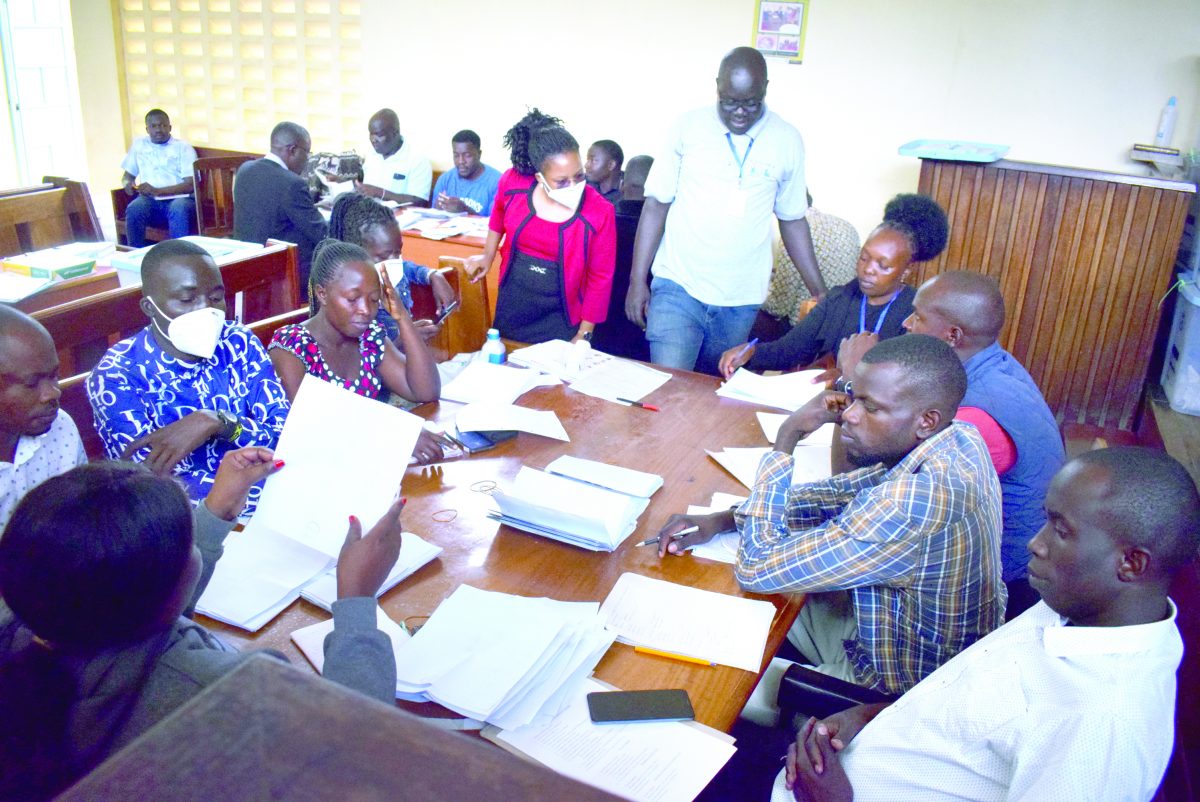Ballot scrutiny in contested Homa Bay polls intensifies
By Noven.Owiti, December 20, 2022Scrutiny and recount of votes in the Homa Bay governorship election petition have intensified, with more people enlisted for the exercise.
The process commenced on Wednesday and is expected to end on Sunday, according to a directive by the Homa Bay presiding judge, Roselyn Aburili.
The exercise affects 195 of the 1,228 polling stations, in eight constituencies, in the county.
Yesterday, the Homa Bay courtroom that has been set aside for the activity was a hive of activity as the court staff, agents and advocates representing various sides scrutinised and recounted the votes ahead of the deadline.
The exercise was moved to a larger courtroom to accommodate the extra personnel deployed.
By yesterday morning, some 57 ballot materials from Suba North constituency had been scrutinised.
The scrutiny and recount are being presided over by Homa Bay deputy registrar Joy Wesonga.
They are verifying the number of votes cast for each candidate, the number of voters identified biometrically and number of people who were authorised to vote by presiding officers without biometric identification.
Rejected votes
Also, it will take note of rejected and spoilt votes. Verification of data is being done through physical counting of the votes and comparing them with the entries made in forms 37A, as well as information about voters in the SD card contained in the Kenya Integrated Election Management System (Kiems) kits.
Part of the exercise involves scanning of forms 37A to verify the validity of the documents.
In the case challenging Governor Gladys Wanga’s victory, the petitioner — former Nairobi Governor Evans Kidero — is represented by lawyer Okweh Achiando, while Fredrick Orego represents Wanga.
Peter Samba and Maurine Odek are representing the Independent Electoral and Boundaries Commission (IEBC).
Lawyers representing the two parties are keen on the outcome of the process.
Achiando said they are keen on checking the validity of the votes cast. Similarly, he said, they want to establish if there was an illegal stuffing of ballot boxes.
“We are majorly concerned about the quality of votes, and not the number,” he said. Agents and advocates involved in the exercise are also checking on data in polling station diaries.
Achiando said what is being checked includes whether party agents signed the documents during polls.
The exercise resumed on Friday morning after a temporary halt on Thursday.
It failed to take place the whole of Thursday afternoon as the parties representing Wanga and the petitioner (Kidero) failed to agree on the method of doing the scrutiny.
Raised objections
The exercise was stopped when lawyers and agents of Kidero raised objections to how the scrutiny was being done.
They raised concerns that the scrutiny process of marked ballot papers should include matching them with their respective counterfoils.
This includes checking each ballot paper’s serial number and its counterfoil and checking whether each ballot paper has an IEBC watermark.
Lawyers representing Wanga, Kidero and those of the IEBC later held a closed-door meeting with Homa Bay deputy registrar Wesonga to break the stalemate.
Wesonga said she would write a report based on the observations made.
The outcome of the exercise is expected to form part of what the presiding judge will use in determining the case.
